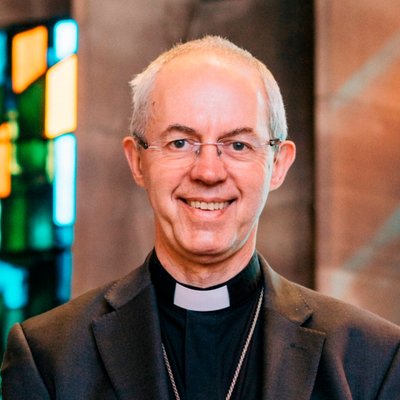By Ben Kerrigan-
The Archbishop of Canterbury, Justin Welby, has criticized the UK’s new imigration bill, saying that it fails to address the needs of refugees and asylum seekers and could lead to the creation of a “hostile environment” for migrants.
The new bill, which was introduced in the House of Commons in March this year, seeks to end freedom of movement for EU citizens and introduce a points-based system for all immigrants.
The bill, unveiled in March, is a key part of Prime Minister Rishi Sunak’s plan to “stop” small boats crossing the English Channel – which he has made a priority ahead of the next general election.
It will place a legal duty on the home secretary to detain and remove those arriving in the UK illegally, to Rwanda or another “safe” third country.
It has been widely criticized by human rights groups and refugee advocates, who say that it will make it harder for people to seek asylum in the UK and could result in the deportation of vulnerable people.
The Archbishop was speaking as the bill began what is expected to be a rocky passage through the House of Lords.
Immigration Minister Robert Jenrick urged peers to back the legislation.
Adding that the archbishop was “wrong” in his criticism, he said: “There is nothing moral about allowing the pernicious trade of people smugglers to continue.
“I want to see that stopped, and this bill is the only way to do that,” he told BBC Radio 4’s World at One.
He added that critics of the bill, including opposition parties, had not suggested “any viable alternatives” to stop journeys across the Channel.
The archbishop’s intervention came during a lengthy, highly charged debate about the bill in the Lords on Wednesday.
The legislation cleared its first parliamentary hurdle in the Lords after a Liberal Democrat bid to block it was rejected by 179 votes to 76.
The bill, unveiled in March, is a key part of Prime Minister Rishi Sunak’s plan to “stop” small boats crossing the English Channel – which he has made a priority ahead of the next general election.
It will place a legal duty on the home secretary to detain and remove those arriving in the UK illegally, to Rwanda or another “safe” third country
The UK government has defended the bill, saying that it will create a fair and sustainable immigration system that benefits both the UK and those who come to live and work in the country. Home Secretary Priti Patel has said that the bill will “attract the brightest and the best from around the world,” while also protecting the rights of workers and cracking down on illegal immigration.
However, many critics say that the bill is based on an overly simplistic understanding of immigration and fails to address the root causes of displacement and migration. They argue that instead of focusing on border controls and restrictions, the UK government should be working to address the underlying factors that drive people to leave their homes and seek refuge elsewhere.
There are also concerns that the bill gives ministers more leverage to tie the hands of European judges from blocking deportations.
Archbishop Welby has in the past called for a “comprehensive and compassionate” approach to migration that addresses the root causes of displacement and provides support for refugees and asylum seekers.
“The solution to migration is not simply to close our borders and turn away those in need,” he said. “We must instead work to address the root causes of displacement and create a system that is fair, just, and compassionate.”
The Archbishop’s criticism of the UK’s immigration bill comes amid a wider debate over the role of religion and faith in shaping public policy. Many religious leaders and organizations have been vocal in their opposition to policies that they see as harmful to vulnerable and marginalized communities, and have called on governments to prioritize compassion, justice, and human dignity in their decision-making.
The role of religion in shaping public policy is not without controversy, however, and some critics argue that religious leaders should not have a role in political debates or policy-making. They say that religious values are not universal, and that decisions about immigration, social welfare, and other issues should be based on secular principles and evidence-based research.
The archbishop, one of nearly 90 peers who have put their names down to speak in the debate, told the Lords the bill “fails utterly” to take long-term view of the migration challenges around the world.
Although he conceded existing international law was in need of updating, he said the bill represented a “dramatic departure” from existing conventions and would undermine international co-operation on the issue.
Describing the bill as a “short-term fix,” he said it “risks great damage to the UK’s interests and reputation, at home and abroad”.
He added it was “morally unacceptable and politically impractical” for the UK to let the poorest countries deal with asylum seekers when the UK is cutting its international aid spending.

